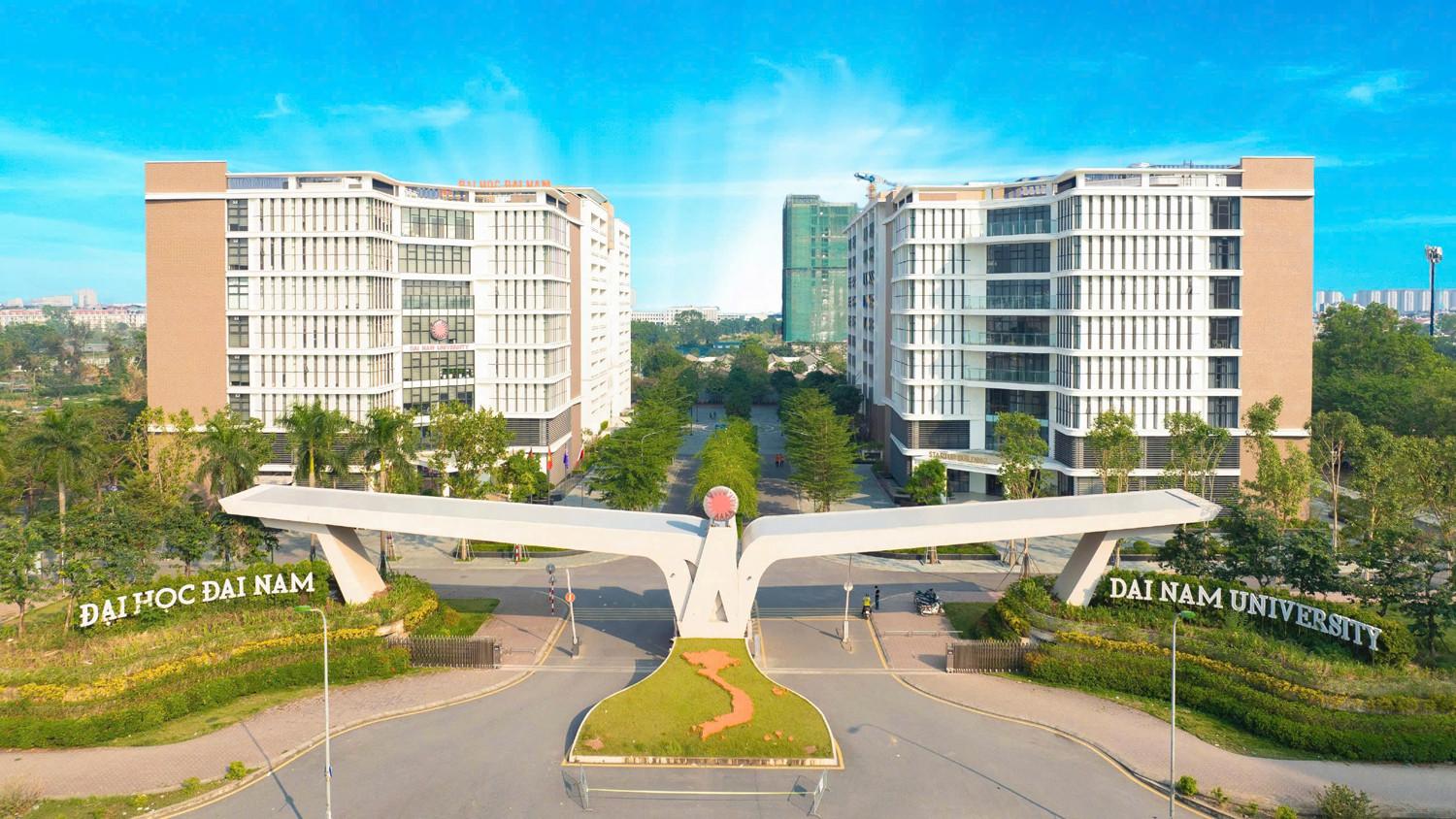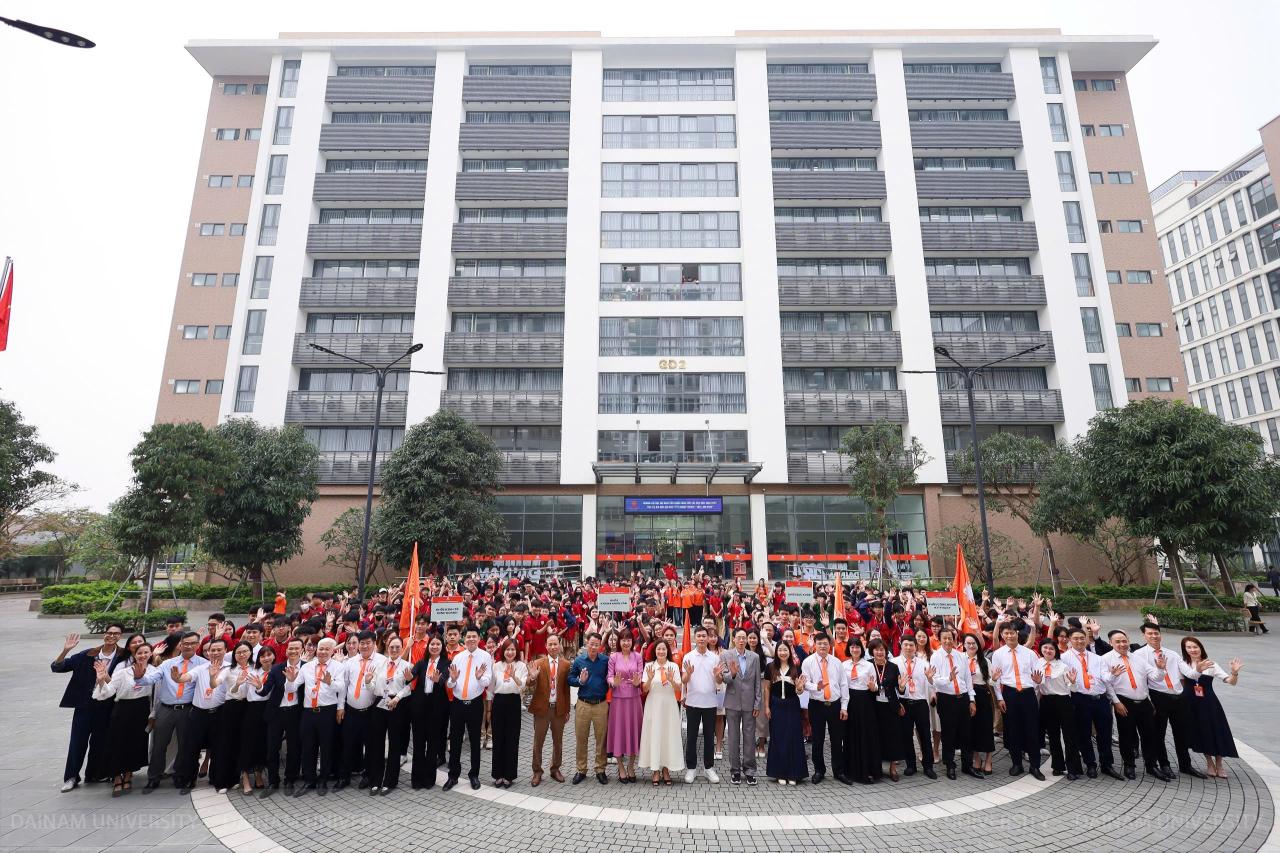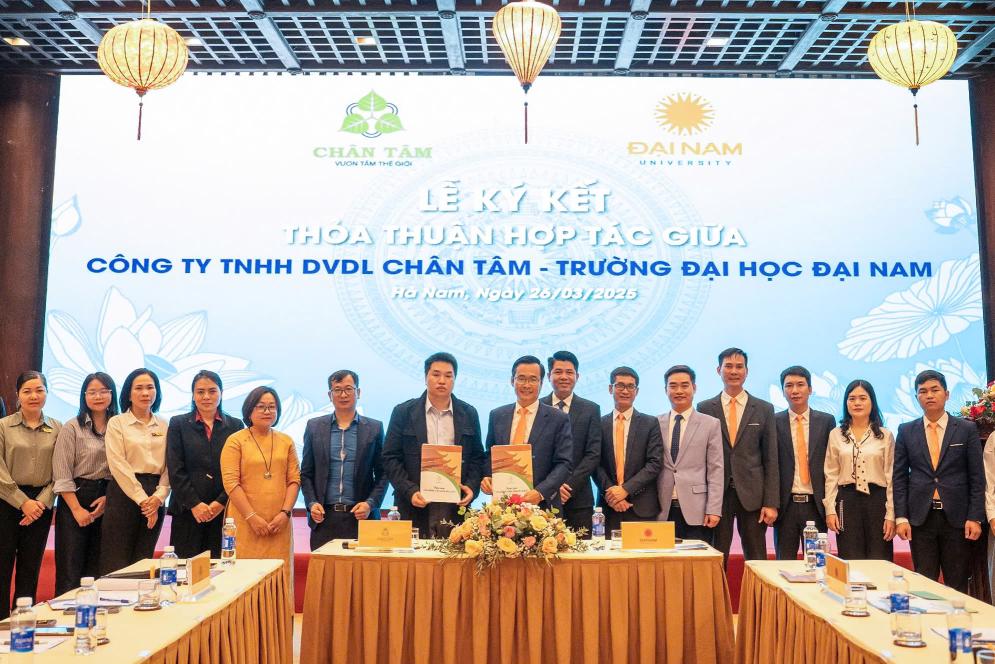Hello, Question - Basic cultural categories
Posted date 29/03/2017
13.062 view

The Vietnamese greeting ritual is not only a matter of culture and language, but also of ethics. It is a way of expressing the personality of the greeting subject and the personality of the greeted object. Whether it is a formal greeting or an informal greeting, it still shows cultural communication.
(MSc. Pham Van Minh - Deputy Head of Faculty of Business Administration, Dai Nam University)
The Vietnamese greeting ritual is not only a matter of culture and language, but also of ethics . It is a way of expressing the personality of the greeting subject and the personality of the greeted object. Whether it is a formal greeting or an informal greeting, it also shows cultural communication.
Personal ethics is the core of personal culture, it is expressed through behavior, through speech, greetings, and the way of dealing with the community. Therefore, the opening greeting for Vietnamese people has a very important spiritual value, a spiritual value higher than material: " A greeting is more valuable than a feast " . For Vietnamese people, greetings not only have cultural and social significance, but also express a person's personality. No one wants to be considered unethical, because the highest standard to determine human value is morality . Living in this world, respecting each other is not about position or money, but about Respect .
In addition to the mandatory formal greetings in work, administration, diplomacy, etc., Vietnamese people also prefer to choose the greetings based on emotional relationships , using the way of addressing according to relatives and intimacy to greet. However, no matter what the way of addressing is, it still shows Humility in addressing and Respect in addressing, which is a way of "lowering oneself" and elevating the person being greeted. That is a way to gain a good impression from the beginning of the greeting subject with the communication object. For example: An older person or superior when meeting a younger person or subordinate, is generous in greeting first, showing the strategy of greeting humbly and respectfully to "win favor".
The Vietnamese greeting ritual is not only a matter of culture and language, but also of ethics . It is a way of expressing the personality of the greeting subject and the personality of the greeted object. Whether it is a formal greeting or an informal greeting, it also shows cultural communication.
Personal ethics is the core of personal culture, it is expressed through behavior, through speech, greetings, and the way of dealing with the community. Therefore, the opening greeting for Vietnamese people has a very important spiritual value, a spiritual value higher than material: " A greeting is more valuable than a feast " . For Vietnamese people, greetings not only have cultural and social significance, but also express a person's personality. No one wants to be considered unethical, because the highest standard to determine human value is morality . Living in this world, respecting each other is not about position or money, but about Respect .
In addition to the mandatory formal greetings in work, administration, diplomacy, etc., Vietnamese people also prefer to choose the greetings based on emotional relationships , using the way of addressing according to relatives and intimacy to greet. However, no matter what the way of addressing is, it still shows Humility in addressing and Respect in addressing, which is a way of "lowering oneself" and elevating the person being greeted. That is a way to gain a good impression from the beginning of the greeting subject with the communication object. For example: An older person or superior when meeting a younger person or subordinate, is generous in greeting first, showing the strategy of greeting humbly and respectfully to "win favor".
.png)
In the old days, when a doctor or a mandarin returned to his village, the whole village, the whole commune, and the district brought flags, fans, and palanquins to welcome him. But when they arrived at the village, they all got off their horses or palanquins to greet the elders first, then the dignitaries. That person's character was evaluated through the way they behaved according to the "three bonds" in the community: family, friends, and village. The form of greeting could be verbal (language) or (non-verbal) body language, gestures, movements, attitudes, eyes, smiles... However, with older people or superiors, you must use the form of language and in the most proactive way. You cannot greet your superiors or older people by "nodding" without any accompanying greeting. You also cannot enter someone else's house without greeting the homeowner, or enter someone else's room without greeting the person in that room.
Vietnamese greetings, especially informal greetings, often do not have a strict pattern but depend on the communication situation. However, greetings must be a manifestation of the personality, morality, and sincerity of the greeting subject to the greeting object, so in addressing, Vietnamese people use many kinship terms and other words to address and replace personal pronouns. In this way, the expressiveness and sentimentality are higher. All forms of address are based on the relationship between I and the interlocutor in the situation, so the form of address must be chosen.
Greeting by asking is a distinct cultural characteristic. Vietnamese people use greetings together because greetings are often followed by inquiries : asking about health, work, where they are going, what they are doing... In essence, it is a concern for the person being greeted, expressing affection and intimacy. Greeting by asking is often used in informal greetings with everyday acquaintances.
The person being greeted must be quite familiar and often meet the subject of the greeting to be able to use the method of omitting the greeting word, even omitting the title of address indicating the subject of the greeting. (For example: - Hello teacher! Teacher, are you going to class? - Hello brother! Are you going home from work? In this case, it can be omitted as: - Teacher! Teacher, are you going to class? - Brother! Are you going home from work?).
Language is the most important and preeminent means of communication for human beings. Thanks to language, each individual can exchange information and establish relationships with people around them. It can be affirmed that greeting is the first social ritual, the minimum courtesy of each individual when starting a communication. In Vietnam, the cultural beauty of greetings is summarized by our ancestors into valuable lessons in the treasure trove of proverbs and folk songs: "The knife is more likely to glance, the person is more likely to greet, the more familiar" , "When meeting, cover your hat and do not greet. Just keep silent like that, who knows when you will meet each other".
Vietnamese greetings, especially informal greetings, often do not have a strict pattern but depend on the communication situation. However, greetings must be a manifestation of the personality, morality, and sincerity of the greeting subject to the greeting object, so in addressing, Vietnamese people use many kinship terms and other words to address and replace personal pronouns. In this way, the expressiveness and sentimentality are higher. All forms of address are based on the relationship between I and the interlocutor in the situation, so the form of address must be chosen.
Greeting by asking is a distinct cultural characteristic. Vietnamese people use greetings together because greetings are often followed by inquiries : asking about health, work, where they are going, what they are doing... In essence, it is a concern for the person being greeted, expressing affection and intimacy. Greeting by asking is often used in informal greetings with everyday acquaintances.
The person being greeted must be quite familiar and often meet the subject of the greeting to be able to use the method of omitting the greeting word, even omitting the title of address indicating the subject of the greeting. (For example: - Hello teacher! Teacher, are you going to class? - Hello brother! Are you going home from work? In this case, it can be omitted as: - Teacher! Teacher, are you going to class? - Brother! Are you going home from work?).
Language is the most important and preeminent means of communication for human beings. Thanks to language, each individual can exchange information and establish relationships with people around them. It can be affirmed that greeting is the first social ritual, the minimum courtesy of each individual when starting a communication. In Vietnam, the cultural beauty of greetings is summarized by our ancestors into valuable lessons in the treasure trove of proverbs and folk songs: "The knife is more likely to glance, the person is more likely to greet, the more familiar" , "When meeting, cover your hat and do not greet. Just keep silent like that, who knows when you will meet each other".
Latest article
View all Posts
Related articles
See all related Articles
Register for admission consultation 2025
Dai Nam University offers admissions to
36 academic programs
across a diverse range of disciplines, including Healthcare, Engineering and Technology, Economics and Business, and Social Sciences and Humanities.
Register now to secure
scholarships and tuition support worth up to 55 billion VND
scholarships and tuition support worth up to 55 billion VND

Register now to secure
scholarships and tuition support worth up to 55 billion VND
scholarships and tuition support worth up to 55 billion VND








